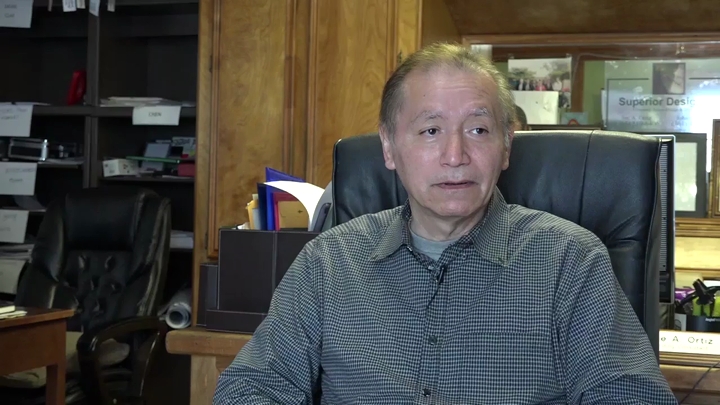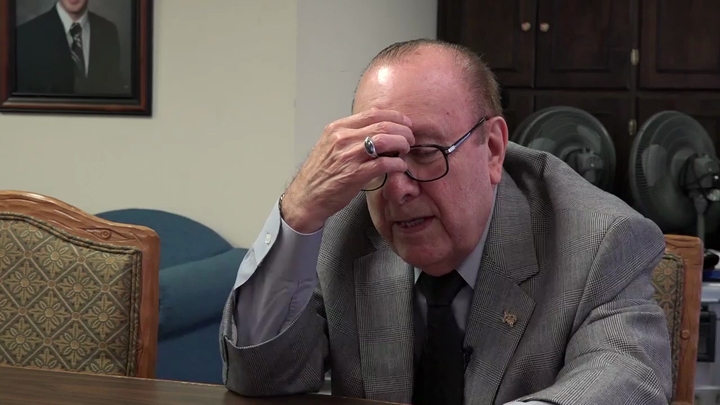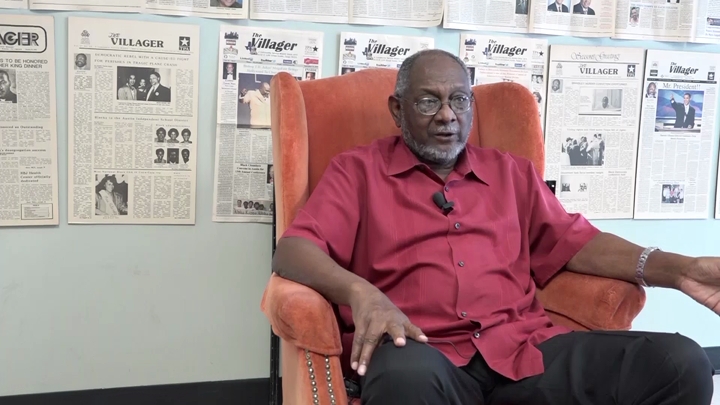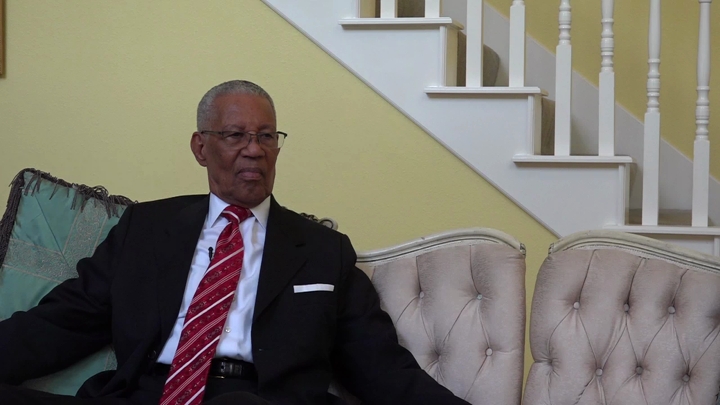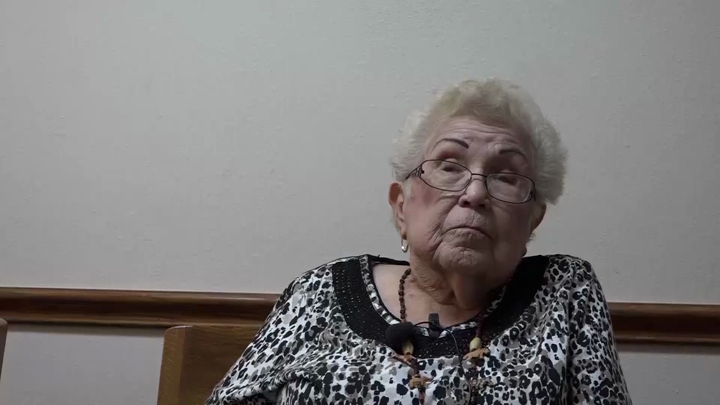de los Santos / "1963 Was a Bad Year for Mexicans"
sign up or sign in to add/edit transcript
Miguel de los Santos: But I think once the courts went away, once the thinking of the courts was everything is alright now we can back off and districts can do whatever they want. Districts have gone back to doing whatever they want, and in many cases it’s not the best for minority groups. But they can’t go all the way back to where they were because you know there still are laws out there that are governing them. Interviewer: Two more questions then we’re done I promise. MS: Okay I: When you started you said that 1963 (post integration in schools) was a bad year for Mexican Americans. Do you have any reasons why that you want to share with us? MS: Well, Just like I said you know? I was in HighSchool and you know we had people like the counselor that I mentioned. The very first counselor that I met and I’ll never forget it, and was not actually the one that told me I couldn’t be an english teacher. Was when I came in as a freshman, I remember I told you I went to parochial school (private school that is affiliated with a religion) so, this is my first experience with a public school. But we were tested in the..we did achievement tests and IQ tests and whatever in the Catholic School also. So when I come to my freshman counselor and I sit down with him, and he looks at my grades and he looked at me, and I’d been picking cotton all summer so I’m much darker than I am right now (gestures to self) you know we’re out in the sun all day so I been in the field all summer. And I'm sitting before this man and he looks at me. And he looks at ,and you know I guess my clothes everything gave me away that I was poor and he looks at my grades, and I sense in him he's having difficulty putting me in the number one groups. And I didn’t know what all this meant until later and he looks at me. And I remember he looks at me and looks down and says this is what I remember. “All group 1s?” I didn’t know what a group one was. I just shrugged. And then he formed my schedule did my schedule. And then the next thing I know I’m in these classes that I talked about earlier and some of my friends are not. Because they may not have had as good test scores as I had had. So it was a bad year because we were segregated by what they call ability which is a lot of times language. It was a bad year because we had a lot of racists on our staff that really didn’t think highly of us.And I’m not just talking about 63 I use 63 because that’s when I graduated highschool. But that whole era… that whole era was not good for us. The people that ran the schools didn’t believe in us. They uh focused their attention.. I remember one weekend in Burke highschool was was trashed over the weekend, and graffiti and the whole thing. And I remember going into my English class. I was a sophomore and Ms.Burfurt uh almost crying this teacher. She was a great teacher but we knew she didn’t like us. We knew she didn’t want us to be in that class. But as far as what she taught us I mean she was teaching to the group and we were learning with the group. And she said, “they ought to put those kids in jail”. And then she just went on and on about those kids that trashed the school because she was assuming it was done by Mexicans. In the end it was a bunch of white kids including her own son. I: Audibly in shock MS: You know but I mean the way she was expressing herself… I: Did they do anything to them? MS: Of course not, they didn’t do anything to them. So but we went.. We walked out and said,”Pinche she doesn't know what she's talking about she probably thinks it was us and so on,and we had this feeling this woman believed it was us. And it wasn’t us. Not that we weren’t capable but it wasn’t us in this case. But it was the white kids, the sons of some of the professionals that run the school. I: Thats embarrassing MS: And and and I remember her a couple days later and we would talk as kids and we would talk as kids and come in very meek about the whole thing(in reference to the teacher).Kinda like to brush over and ignore the whole thing. But being very embarrassed as a parent ,but that I would have been. But the comments that she made were directed at us and I know what was going through her mind, (in reference to the teachers thoughts) ‘A bunch of new Mexicans came in and did this over the weekend. You should be ashamed of yourselves blah blah’.That wasn’t the case. So that's what I meant uh and it wasn't, and what happened and this was pre-19 pre-civil rights act of 1965 although you've already had brown. And you know you already had cases that were directing us to change. But when brown came out there was no oomf to it there was no implementation so people ignored it. In 65 you know here comes the civil rights act and here come programmes you know with money to the schools and schools are told if you don’t do what we say we will take your money away. You know and there comes to be more of a policing in those schools, and in the late 60s and the early 70s. So people a lot of people that were in power at that time not out of the kindness of their hearts. But they had to conform to the law so they had to begin to change, and the way systems change is that you start with changing behaviors even if it's by force once behaviors are changed, ‘you have to do this for mexican kids whether you like it or not. You have to behave in this way’, over time those behaviors become a part of the culture. Now it's not just behaviors, it's the way things are done. So we had moved a long way from then to today.
| Interview | Interview with Miguel de los Santos |
| Subjects | Discrimination or Segregation › Discrimination or Segregation at School |
| Education › Secondary Education | |
| Education › Teachers and Administrators | |
| Education › Private and Parochial Education | |
| Court Cases | |
| Court Cases › Brown v. Board of Education | |
| Electoral Politics › Electoral Districts | |
| Law and Public Policy › Civil Rights Act of 1964 | |
| Law and Public Policy › War on Poverty | |
| Tags | sign up or sign in to add/edit tags |
| Interview date | 2015-06-24 |
| Interview source | CRBB Summer 2015 |
| Interviewees | de los Santos, Miguel |
| Locations | Edinburg, TX |
| Duration | 00:06:29 |
| Citation | ""1963 Was a Bad Year for Mexicans"," from Miguel de los Santos oral history interview with , June 24, 2015, Edinburg, TX, Civil Rights in Black and Brown Interview Database, https://crbb.tcu.edu/clips/1391/1963-was-a-bad-year-for-mexicans, accessed March 03, 2026 |


